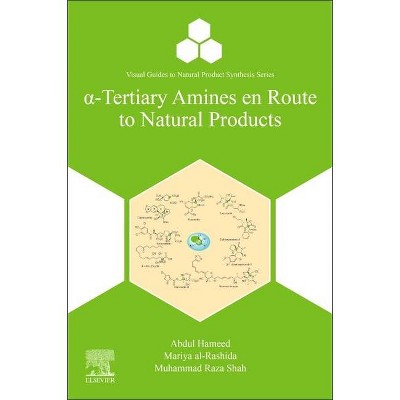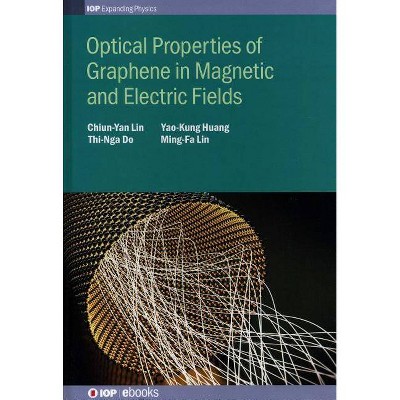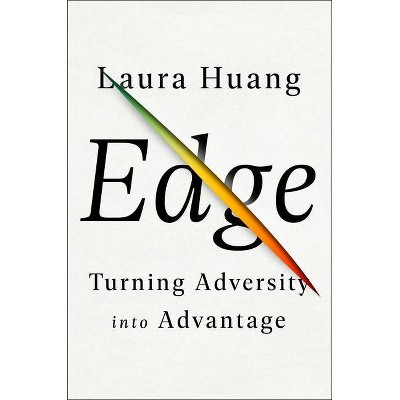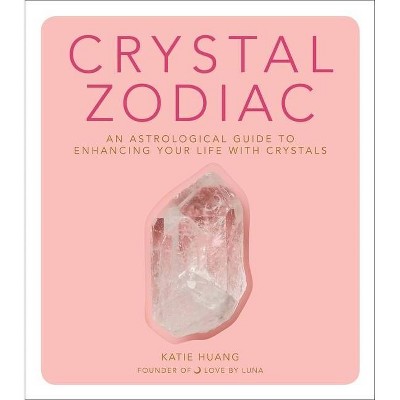Efficiency in Natural Product Total Synthesis - by Pei-Qiang Huang & Zhu-Jun Yao & Richard P Hsung (Hardcover)
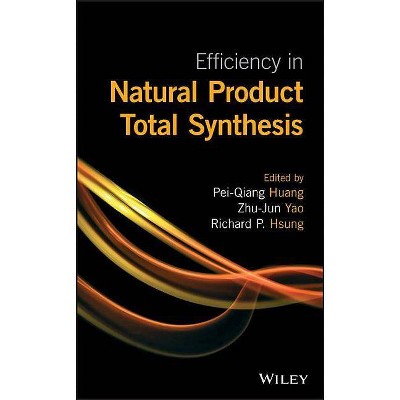
Similar Products
Products of same category from the store
AllProduct info
<p/><br></br><p><b> Book Synopsis </b></p></br></br><p>Uniting the key organic topics of total synthesis and efficient synthetic methodologies, this book clearly overviews synthetic strategies and tactics applied in total synthesis, demonstrating how the total synthesis of natural products enables scientific and drug discovery.</p> <p>- Focuses on efficiency, a fundamental and important issue in natural products synthesis that makes natural product synthesis a powerful tool in biological and pharmaceutical science<br />- Describes new methods like organocatalysis, multicomponent and cascade reactions, and biomimetic synthesis<br />- Appeals to graduate students with two sections at the end of each chapter illustrating key reactions, strategies, tactics, and concepts; and good but unfinished total synthesis (synthesis of core structure) before the last section<br />- Compiles examples of solid phase synthesis and continuing flow chemistry-based total synthesis which are very relevant and attractive to industry R&D professionals</p><p/><br></br><p><b> From the Back Cover </b></p></br></br><p>Total synthesis of natural products is one of organic chemistry's oldest disciplines, enabling chemists to duplicate nature and providing the means to examine natural phenomena more closely. The development of drugs, the examination of biopathways and many other achievements would not have been possible without total synthesis - for example, about half of the drugs currently in clinical use have their origins in natural products. New concepts, strategies, and tactics for efficient total synthesis of natural products will continue as a major pursuit for synthetic organic, medicinal, and process chemists for a long time to come. <p>Uniting the key organic topics of total synthesis and efficient synthetic methodologies, <i>Efficiency in Natural Product Total Synthesis</i> clearly overviews the strategies and tactics applied in total synthesis, demonstrating how the total synthesis of natural products enables scientific and drug discovery. The state-of-the-art topics covered include: economical and protecting-group-free synthesis, computer-aided total synthesis, catalytic asymmetric synthesis, biomimetic and bio-inspired synthesis, as well as different classes of organic reactions. Other chapters address chemical building blocks, technologies of chemical and biological space, and synthetic biology. A key part of the coverage is the illustration of how these practices and strategies influence drug discovery and chemical biology. <p>Chemical researchers working with natural products synthesis will find this book to be an important reference and resource that offers a number of valuable features: <ul> <li>Focus on efficiency, a fundamental and important issue in natural products synthesis that makes natural product synthesis a powerful tool in biological and pharmaceutical science</li> <li>Discussion of new methods like organocatalysis, multicomponent and cascade reactions, and biomimetic synthesis</li> <li>Sections at the end of each chapter illustrating key reactions, strategies, tactics, and concepts; and good but unfinished total synthesis (synthesis of core structure) before the last section</li> <li>Examples of solid phase synthesis and continuing flow chemistry-based total synthesis, which are very relevant for industrial R&D</li> </ul><p/><br></br><p><b> About the Author </b></p></br></br><p><b>Pei-Qiang Huang, PhD, </b> is Professor of Chemistry and former Dean of the College of Chemistry and Chemical Engineering at Xiamen University. <p><b>Zhu-Jun Yao, PhD, </b> is Cyrus Tang Chair Professor and University Distinguished Professor at Nanjing University. <p><b>Richard P. Hsung, PhD, </b> is Kremers Chair and Vials Distinguished Professor of Pharmaceutical Sciences at School of Pharmacy, University of Wisconsin-Madison.
Price History
Price Archive shows prices from various stores, lets you see history and find the cheapest. There is no actual sale on the website. For all support, inquiry and suggestion messagescommunication@pricearchive.us


